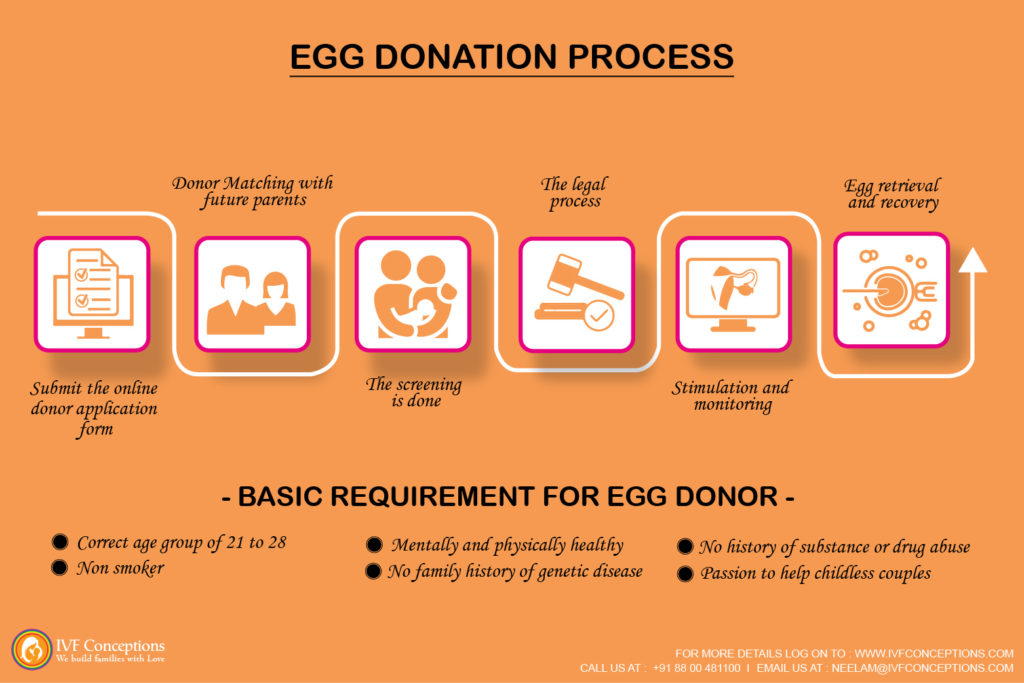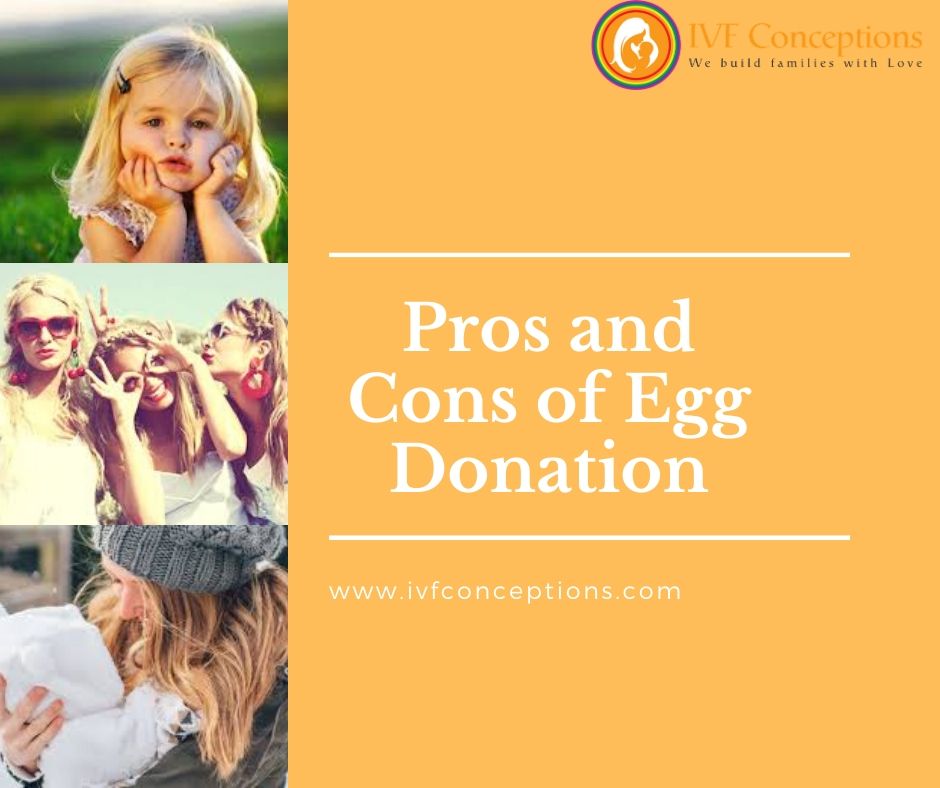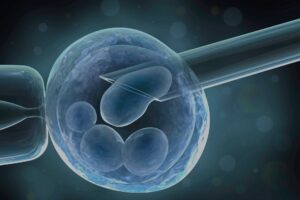What Are the Pros and Cons of Egg Donation?
Egg donation is a remarkable process that offers hope to individuals or couples struggling with infertility. It involves a woman donating her eggs to help someone else achieve pregnancy, often through in vitro fertilization (IVF). While egg donation has enabled countless families to grow, it’s important to understand the pros and cons of this process from both the donor’s and the recipient’s perspectives.
In this comprehensive guide, we’ll explore the benefits and potential challenges of egg donation, shedding light on its medical, emotional, and ethical aspects.
Get in touch for a Free Surrogacy Consultancy:
📲 +91-8800481100 ( WhatsApp, Line, Viber)
Here is a summary of the pros and cons of egg donation.
| Pros | Cons |
|---|---|
| High Success Rates: Egg donation has high success rates, especially with young, healthy donors. | Physical Risks: Includes risks like Ovarian Hyperstimulation Syndrome (OHSS) and surgical complications during egg retrieval. |
| Enables Parenthood: Gives hope to infertile couples, same-sex male couples, and those with genetic disorders. | Emotional Impact: Donors may experience emotional stress about their genetic material being used to create a child. |
| Financial Compensation: Donors receive financial compensation, ranging from $5,000 to $15,000 or more. | Costly for Recipients: The process can be expensive for intended parents, with costs between $20,000 and $40,000. |
| Helps Avoid Genetic Disorders: Prevents passing on genetic disorders. | Ethical Concerns: Issues like donor anonymity and commodification of reproductive materials arise. |
| Personal Fulfillment: Donors find satisfaction in helping others build families. | No Guarantee of Success: Even with donor eggs, the IVF process may not always result in a pregnancy. |
| Supports Same-Sex Couples: Egg donation, combined with surrogacy, helps same-sex male couples start families. | Legal Complications: Navigating legalities around donor rights, compensation, and anonymity can be complex. |

What is Egg Donation?
Egg donation is a medical procedure where a woman, known as an egg donor, provides eggs (oocytes) to another person or couple to help them conceive a child. This process is often used by:
- Women with fertility issues who cannot produce healthy eggs.
- Same-sex male couples seeking to start a family.
- Women with genetic disorders who wish to avoid passing them on to their children.
The donated eggs are fertilized with sperm through IVF, and the resulting embryos are either implanted into the intended mother’s uterus or that of a surrogate.
Pros of Egg Donation
1. High Success Rates for Recipients
Egg donation has high success rates compared to other fertility treatments, especially when the donor is young and healthy. For recipients, egg donation offers a chance to experience pregnancy, childbirth, and genetic bonding with their partner (if using the male partner’s sperm).
2. Fulfills Dreams of Parenthood
For intended parents, especially those who have struggled with infertility or genetic disorders, egg donation is a life-changing opportunity. It gives them the chance to start or expand their family when other fertility treatments have failed.
3. Financial Compensation for Donors
Egg donors are often compensated for their time, effort, and commitment. Compensation can range from $5,000 to $15,000 or more, depending on factors like location, clinic, and donor characteristics. While many donors are motivated by altruism, the financial aspect is also an attractive benefit.
4. Helps Address Genetic Disorders
Egg donation can prevent the transmission of genetic disorders. Women with inherited conditions can choose to use donor eggs to ensure their child is born without those specific genetic risks.
5. Personal Fulfillment for Donors
Many egg donors find deep satisfaction in knowing they’ve helped someone achieve their dream of parenthood. Altruistic donors often view their role as an opportunity to make a positive, life-changing impact on another family.
6. Allows Same-Sex Couples to Build Families
Egg donation plays a crucial role in enabling same-sex male couples to become parents. When paired with surrogacy, egg donation offers a biological link to one partner while providing the opportunity to experience parenthood.
Cons of Egg Donation
1. Physical and Emotional Risks for Donors
While generally safe, egg donation does carry medical risks, including:
- Ovarian Hyperstimulation Syndrome (OHSS): This condition occurs when the ovaries overreact to fertility medications. Symptoms range from mild (bloating and discomfort) to severe (blood clots and kidney problems).
- Surgical Risks: The egg retrieval process is a minor surgical procedure that can lead to complications such as infection or internal bleeding, although these risks are rare.
- Emotional Impact: Some egg donors may experience emotional distress, especially if they struggle with the idea of their genetic material being used to create a child they may never know.
2. Costly for Intended Parents
While the success rates of egg donation are high, the process is expensive. Costs for intended parents can range from $20,000 to $40,000 or more, depending on clinic fees, donor compensation, IVF costs, and legal fees. For many families, these costs can be financially overwhelming.
3. Ethical Concerns
Egg donation raises several ethical concerns, particularly related to:
- Anonymity vs. Known Donation: Some people question whether children born from egg donation should have the right to know the identity of their donor. Conversely, some donors may prefer to remain anonymous and not be involved in the child’s life.
- Commodification: Critics argue that egg donation can turn women’s reproductive material into a commodity, especially when high compensation is involved.
4. No Guarantee of Success
While egg donation improves the chances of conception, it doesn’t guarantee pregnancy. Intended parents must prepare for the possibility that even with donor eggs, the IVF cycle may not result in a viable pregnancy.
5. Long-Term Medical Effects on Donors
The long-term effects of egg donation on the donor’s health are still not fully understood. Some studies suggest that repeated hormone treatments and egg retrievals could have unknown effects on fertility or increase the risk of certain health conditions later in life.
6. Legal Complications
The legal framework around egg donation can be complex. Laws vary by country and state, and in some places, egg donation is either highly regulated or prohibited. Intended parents and donors must navigate legalities regarding parental rights, compensation, and donor anonymity.
 Is Egg Donation Right for You?
Is Egg Donation Right for You?
Whether you are considering becoming an egg donor or are an intended parent exploring egg donation, it’s essential to weigh the pros and cons. Here’s a breakdown of considerations for both donors and recipients:
Considerations for Egg Donors
- Emotional Preparedness: Understand the emotional impact of knowing that your genetic material may be used to create a child.
- Health and Safety: Be aware of the physical risks and ensure you undergo a thorough medical evaluation.
- Motivations: Reflect on your reasons for donating, whether altruistic or financial.
Considerations for Intended Parents
- Financial Cost: Be prepared for the financial burden that comes with egg donation, including medical and legal fees.
- Emotional Impact: Understand that while you may not be genetically related to the child, egg donation allows you to experience pregnancy and parenthood.
- Ethical Considerations: Consider whether you prefer an anonymous or known donor and how that decision could impact your family.

The Egg Donation Process: A Step-by-Step Overview
For a clearer understanding, here’s a breakdown of the egg donation process:
| Stage | Process |
| 1. Screening | The donor undergoes medical, psychological, and genetic screening to ensure she is a suitable candidate. |
| 2. Legal Contracts | Both parties sign legal agreements outlining the donor’s compensation, anonymity, and parental rights. |
| 3. Hormonal Stimulation | The donor takes fertility drugs to stimulate her ovaries to produce multiple eggs. |
| 4. Egg Retrieval | Eggs are retrieved through a minor surgical procedure known as follicular aspiration, which is performed under sedation. |
| 5. IVF and Fertilization | The recipient’s partner’s sperm (or donor sperm) fertilizes the eggs, and the resulting embryos are implanted in the recipient’s uterus or a surrogate. |
| 6. Post-Procedure Care | The donor undergoes a recovery period, and the recipient begins her pregnancy journey. |
How much does egg donation cost?
The average procedure of egg donation takes up to 2 weeks. So, you can easily expect to pay a donor around $4000. However, there are cases where a donor has received an amount of $15000. Again, the payment depends on the requirements of the intended parents and the characteristics of the egg donors.
The compensation of egg donors in the US is much higher as compared to other countries like Ukraine, Georgia, Russia Spain, and Brazil. In these countries, the egg donor pay is around $1000 to $2000 depending on the egg donor.
Read more about the egg donation process:
Top 8 tips to choose an egg donor
All you need to know about the IVF egg donation process
 Conclusion
Conclusion
Egg donation is an extraordinary gift that offers hope to families struggling with infertility. While the process provides life-changing benefits for both donors and recipients, it also comes with medical, emotional, and ethical challenges that must be carefully considered.
For donors, the decision to donate eggs should be made with a clear understanding of the physical and emotional commitment involved. For intended parents, egg donation can be a pathway to parenthood but requires financial preparation and emotional resilience.
If you are considering egg donation—either as a donor or recipient—it’s essential to consult with fertility experts, legal professionals, and emotional support networks to ensure the process is right for you.
If you’d like to learn more about IVF, Egg Donation, or surrogacy services globally, check out the rest of our website: IVF Conceptions. We offer legally secure and affordable surrogacy consulting services for FREE.
Get in touch for a Free Surrogacy Consultancy:
📲 +91-8800481100 ( WhatsApp, Line, Viber)
 FAQs About Egg Donation
FAQs About Egg Donation
1. What is egg donation? Egg donation is a process where a woman donates her eggs to help another person or couple conceive. The eggs can be fertilized through in vitro fertilization (IVF) and implanted into the recipient.
2. Who can benefit from egg donation? Egg donation is beneficial for women who cannot produce healthy eggs, same-sex male couples, single men, and individuals with genetic disorders who wish to avoid passing on these conditions to their children.
3. What are the success rates of egg donation? Egg donation has higher success rates compared to traditional IVF, particularly when using eggs from younger, healthier donors. Success rates can be as high as 60% per cycle in many cases.
4. Are there any risks for egg donors? Yes, the egg retrieval process carries risks such as Ovarian Hyperstimulation Syndrome (OHSS), potential complications during surgery, and emotional stress.
5. How much are egg donors compensated? Egg donors typically receive between $5,000 and $15,000 per donation, though this can vary depending on the country, agency, or clinic.
6. Is egg donation expensive for intended parents? Yes, the process can be costly for intended parents. The total cost, including IVF treatment, legal fees, and donor compensation, often ranges from $20,000 to $40,000.
7. Can a donor remain anonymous? Yes, egg donors can choose to remain anonymous, although this depends on the laws of the country and the preferences of the intended parents.
8. How is egg donation different from traditional surrogacy? In egg donation, only the eggs are donated. The donor is not responsible for carrying the child. In traditional surrogacy, the surrogate uses her own eggs, making her the biological mother of the child she carries.
9. Can egg donors have children of their own? Yes, many egg donors are women who have their own children. However, having children is not a requirement to become an egg donor.
10. Are there legal concerns with egg donation? Yes, egg donation can involve complex legal agreements to protect both the donor and intended parents. These include rights over the eggs, anonymity, and compensation.
These FAQs aim to address common questions related to egg donation, helping readers make informed decisions about the process.


 Is Egg Donation Right for You?
Is Egg Donation Right for You? Conclusion
Conclusion FAQs About Egg Donation
FAQs About Egg Donation